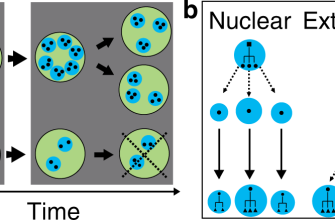Exploring the Effects of Different Parenting Styles on Child Development: A Comprehensive Guide

Parenting styles play a crucial role in shaping the development and future of a child. The way parents interact with their children, set boundaries, and provide emotional support can have a profound impact on the well-being and overall development of the child. Understanding the different parenting styles and their effects is essential for parents, educators, and psychologists who seek to promote healthy and positive child-rearing practices.
Authoritative parenting is often regarded as the most effective and beneficial parenting style. Parents who adopt this approach are responsive and nurturing while establishing clear rules and expectations. They provide their children with guidance and support, promoting independence, self-discipline, and self-esteem. Studies have shown that children raised by authoritative parents are more likely to develop strong social skills, exhibit greater academic achievement, and have better mental health outcomes.
On the other hand, authoritarian parenting is characterized by strict rules and high demands. These parents place a strong emphasis on obedience and discipline, often employing punishments instead of rewards. While authoritarian parenting can lead to immediate compliance, it can also have negative effects on a child’s well-being. Research suggests that children raised in this style can experience higher levels of anxiety, lower self-esteem, and poorer social skills.
Permissive parenting is another style that lacks clear boundaries and discipline. Parents who practice permissive parenting tend to be indulgent and lenient, allowing their children to have few responsibilities and make decisions without much guidance. Although permissive parenting may foster a warm and accepting environment, studies indicate that children raised in this style may struggle with self-control, have difficulty following rules, and exhibit lower academic performance.
Last but not least, neglectful parenting is characterized by a lack of emotional support, supervision, and involvement. Neglectful parents may be physically or emotionally unavailable, failing to meet their children’s basic needs. This parenting style has been associated with various negative outcomes, such as poor academic performance, psychological distress, and a higher risk of engaging in risky behaviors.
In conclusion, the parenting style that parents adopt can significantly influence a child’s development. Authoritative parenting has been widely recognized as the most effective approach, fostering healthy emotional, social, and cognitive development. It is crucial for parents to be aware of the potential consequences of different parenting styles, as this knowledge can empower them to create nurturing and supportive environments that will optimize their children’s growth and well-being.
Exploring Different Parenting Styles
Parenting style refers to the overall approach that parents use to raise and interact with their children. Different parenting styles can have a significant impact on a child’s development and overall well-being. While each parent may have their own unique style, there are several commonly recognized types of parenting styles:
- Authoritarian: Parents who use this style are strict, demanding, and expect obedience without question. They often set high standards and enforce rules strictly, but may lack warmth and emotional support.
- Permissive: Permissive parents have loose or inconsistent rules and provide little discipline. They may be overly indulgent and prioritize their child’s desires over setting boundaries.
- Authoritative: Authoritative parents set clear rules and expectations, but also provide warmth, support, and open communication. They encourage independence and allow their children to express their opinions and make decisions within reason.
- Uninvolved: These parents are neglectful or indifferent to their child’s needs and may provide minimal attention or emotional support. They may have personal issues or be preoccupied with other priorities.
Understanding and being mindful of the different parenting styles can help parents make informed decisions about how they interact with and raise their children. It is important to recognize that no single parenting style is perfect, and successful parenting involves finding a balance that meets the child’s needs while also taking into account the parent’s values and beliefs.
Impact on Child Development

The impact of different parenting styles on child development is significant and can have long-lasting effects on a child’s emotional, cognitive, and social development.
Authoritarian parenting styles, characterized by strict rules and high demands, can lead to a child who lacks autonomy and the ability to make decisions for themselves. These children may struggle with low self-esteem and have difficulty communicating their needs and desires.
Permissive parenting styles, on the other hand, can result in children who have difficulty setting boundaries and may struggle with self-discipline. These children may have a sense of entitlement and have difficulty handling frustration or delayed gratification.
Authoritative parenting styles, characterized by a balance of warmth and discipline, have been found to be the most effective in promoting healthy child development. Children raised with authoritative parenting tend to have higher self-esteem, better social skills, and a greater sense of autonomy.
The impact of parenting styles on child development is not limited to the early years. Research has shown that the effects can carry into adolescence and adulthood. Children who have been raised with authoritarian or permissive parenting styles may be more at risk for developing behavioral problems, including aggression and delinquency. They may also have difficulties forming healthy relationships and may struggle with academic achievement.
Authoritative Parenting Style
The authoritative parenting style is characterized by a balance of strict rules and warm, responsive parenting. Parents who adopt this style set clear expectations and enforce boundaries while also being supportive and nurturing toward their children. This type of parenting promotes independence and self-discipline while also fostering a strong parent-child bond.
One of the key characteristics of authoritative parenting is open communication. Parents who adopt this style encourage their children to express their thoughts and feelings, and they listen attentively and respond empathetically. This open dialogue helps children develop strong communication skills and allows them to feel heard and understood.
In addition to open communication, authoritative parents also provide consistent discipline and guidance. They set clear rules and expectations, and they enforce consequences when these boundaries are crossed. However, authoritative parents are also willing to explain the reasoning behind their rules and allow for negotiation in certain situations. This approach helps children understand the importance of rules and creates a sense of fairness and respect within the family.
The authoritative parenting style has been found to have numerous positive effects on child development. Children who are raised with authoritative parenting tend to have higher self-esteem, better social skills, and greater academic success compared to those raised with other parenting styles. They also exhibit fewer behavioral problems and are better equipped to handle stress and challenges.
The authoritarian parenting style is characterized by strict rules and high expectations set by the parents. In this parenting style, the parents have a strong desire to control their child’s behavior and make all the decisions for them. They value obedience and conformity above all else.
Key Characteristics:
- Rigid rules and regulations: Authoritarian parents have clear and inflexible rules that the child must follow without questioning. They expect obedience without explanation.
- Lack of flexibility: These parents rarely deviate from their established rules and expectations, even in unique situations or when the child’s needs may differ.
- High expectations: Authoritarian parents have very high expectations for their children’s behavior, achievements, and performance. They may pressure their child to excel academically or in other areas.
- Strict discipline: Punishment is common in this parenting style, and it is often used to enforce compliance and obedience. Discipline may be physical or verbal.
- Little room for autonomy: The child has limited freedom to make their own decisions and is expected to unquestioningly follow the rules and instructions set by the parents.
Effects on Child Development:
The authoritarian parenting style can have both positive and negative effects on a child’s development.
Positive Effects:
- Secure structure and discipline: The clear rules and expectations may provide a sense of security and structure for the child.
- Good academic performance: The high expectations and emphasis on achievement may motivate the child to excel academically.
Negative Effects:
Permissive Parenting Style

Permissive parenting is a style characterized by a lack of rules, discipline, and structure. Parents who adopt this style tend to be more lenient and relaxed, allowing their children to do as they please without much intervention or guidance. They often prioritize their child’s happiness and satisfaction in the present moment over establishing boundaries and enforcing rules.
Permissive parents are typically indulgent and nurturing, showing a lot of warmth and affection towards their children. They may avoid confrontation and conflict by giving in to their child’s demands or avoiding setting limits. As a result, children raised in permissive households may struggle with self-control, have difficulty following rules, and exhibit higher levels of impulsivity.
Permissive parenting can result in a lack of resilience and independence in children. Without clear boundaries and expectations, children may struggle to develop crucial life skills and problem-solving abilities. They may find it difficult to adjust to new situations, take responsibility for their actions, and handle frustration.
Furthermore, permissive parenting can contribute to poor academic performance and lower achievement. Without parental guidance and structure, children may not develop effective study habits, time management skills, and a strong work ethic. They may also face difficulties with authority figures outside the home, as they may not have learned how to show respect and follow rules.
It is important to note that not all aspects of permissive parenting are detrimental. The warmth and affection shown by permissive parents can contribute to a strong parent-child bond. Additionally, allowing children some autonomy and independence can promote creativity and self-expression. However, it is crucial for parents to strike a balance between nurturing and setting appropriate boundaries to support their child’s overall development.
Factors Influencing Parenting Styles

Parenting styles are influenced by a variety of factors that include cultural background, socioeconomic status, personal values, and parental temperament.
Cultural Background: Different cultures have distinct beliefs, values, and norms regarding child rearing. These cultural norms play a significant role in shaping parenting styles. For example, in collectivist cultures, such as some Asian cultures, children are typically raised in a more authoritarian manner, where obedience and respect for authority are highly valued. In contrast, individualistic cultures may emphasize independence and promoting a child’s autonomy.
Socioeconomic Status: Socioeconomic status, including factors like income, education level, and occupation, can also impact parenting styles. Higher socioeconomic status parents may have more resources and access to educational opportunities, leading to a more authoritative parenting style focused on guidance and support. Conversely, parents with lower socioeconomic status may face more stressors and have less access to resources, which may influence their parenting style.
Personal Values: Parents’ personal values and beliefs greatly influence their parenting styles. For example, parents who prioritize discipline and structure may adopt an authoritarian style, while those who prioritize independence and fostering creativity may lean toward a permissive style. Personal experiences, religious beliefs, and societal influences can all shape a parent’s values and subsequently their parenting style.
Parental Temperament: The temperament of the parent can also influence their parenting style. Some parents are naturally more nurturing and responsive, which may lead to a more authoritative or permissive parenting style. Others may be more anxious or controlling, resulting in a more authoritarian approach. Parental temperament can be influenced by genetics, upbringing, and personal experiences.
To fully understand parenting styles and their effects on child development, it is important to consider these influencing factors. Recognizing and respecting cultural differences, understanding the impact of socioeconomic status, reflecting on personal values, and acknowledging parental temperament all play a role in shaping parenting styles.
Cultural Background
The cultural background of parents can significantly influence their parenting styles and the overall development of their children. Different cultures have their own beliefs, values, and practices when it comes to child-rearing, which can shape the way parents interact with their children.
For example, in collectivist cultures, such as many Asian countries, there is an emphasis on respect for authority and interdependence. Parents in these cultures may adopt an authoritarian parenting style, which is characterized by strict rules and high expectations. Obedience and conformity are highly valued, and children are often expected to prioritize the needs of the family and community over their individual desires.
In contrast, individualistic cultures, such as those found in Western countries, place more emphasis on personal freedom and independence. Parents in these cultures may adopt a more permissive or authoritative parenting style, which allows children more decision-making power and autonomy. Individualistic cultures often prioritize the development of individual creativity and assertiveness.
It is important to recognize that these cultural differences do not imply that one parenting style is superior to another. Each style has its own advantages and disadvantages, and the effectiveness of a particular parenting style may vary depending on the cultural context. Understanding the cultural background of parents can help professionals working with families to tailor their interventions and support strategies to be culturally appropriate.
Additionally, exposure to different cultures can provide children with a broader perspective and tolerance for diversity. Growing up in a multicultural environment can enhance their ability to navigate a globalized world and appreciate different values and perspectives.
Overall, cultural background plays a crucial role in shaping parenting styles and influencing child development. By recognizing and respecting cultural differences, professionals and parents can create nurturing and empowering environments that meet the unique needs of each child.



